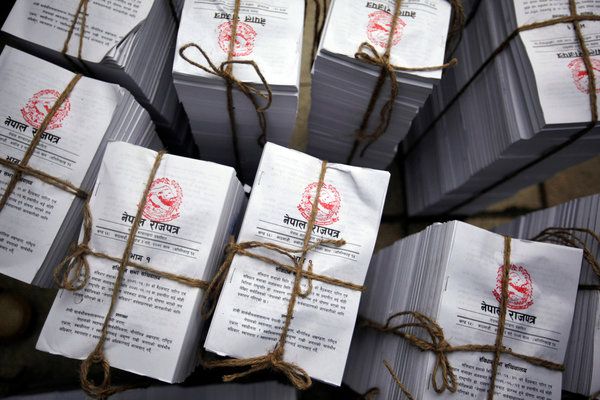Forced eviction from public land unlawful: Activists
Kathmandu, August 24
Lawyers and rights activists have termed the recent demolition of huts and houses in Butwal and Nagarkot unlawful because the local governments forcefully evicted people without giving them alternative housing and means of livelihood.
A few days ago, Changunarayan Municipality had demolished houses and huts constructed on public land. People had been living there for the last 40 years. Recently, Butwal Sub-metropolitan City also evicted 16 families from public land.
Advocate Raju Chapagai said Nepal was bound by international laws not to forcefully evict people from houses, yet local governments forcefully evicted families from public land in Butwal and Nagarkot. He said the government was adopting the same old flawed policies to evict people from public land.
Right to housing must be considered in the contexts of people’s right to food sovereignty and dignified life. “If the government takes these into account, it cannot evict people from public land without giving them an alternative,” he said. Chapagai said the newly enacted Right to Food Act had criminalised the act of forcefully evicting people and depriving them of means of livelihood. The government, he added, should carry out development projects in a holistic manner taking into account the need for development and citizens’ fundamental rights. “Building infrastructure alone is not development,” he said and added that the government should also take into account rights issues and sustainable development goals.
Advocate Basanta Adhikari also said the constitution’s provision related to right to housing was faulty as it protected only those who owned personal land from forced eviction.
Article 37 (1) stipulates that every citizen shall have the right to appropriate housing. Article 37 (2) says no citizen shall be evicted from the residence owned by him, nor shall his or her residence be infringed, except in accordance with law.
Adhikari said the constitution needed to be amended to extend protection to people living on public or private land. “In Butwal, 16 families were evicted by the sub-metropolis from public land. Wherever people build their houses be it in somebody’s land or public land, they spend money. If the government does not compensate them, that cannot be justified,” he said.
Adhikari said the government could address the concerns of affected persons in the new regulation without amending the constitution by explaining the word ‘ownership’ as applying to huts and structures built on public land. The regulation can ensure security of tenure whereby rights of occupants of the huts and houses is fully protected. Adhikari said the government was yet to enact new regulations.
Director of Amnesty International, Nepal, Nirajan Thapaliya said forced eviction was unlawful and his office would be concerned if the government did not do something about it immediately as people could face forced eviction in other parts of the country as well.
His office wrote to Butwal sub-metropolis raising the issue of forced eviction. The sub-metropolis said that it had assured evicted people they would be provided alternative.
“I saw people losing their houses and all their belongings overnight in Nagarkot. The local government evicted people from roadsides with the help of police. Such forced eviction is not permitted under international laws to which Nepal is party,” he said and added that government authorities needed to give an alternative to affected people. “I do not think affected people will reject the local government’s offer if they are given a fair deal,” he said. Both these evictions took place during rainy season when people needed their own roof for protection against rain. He said his office had written to the federal government and the National Human Rights Commission raising the issue of forced eviction from public land.






